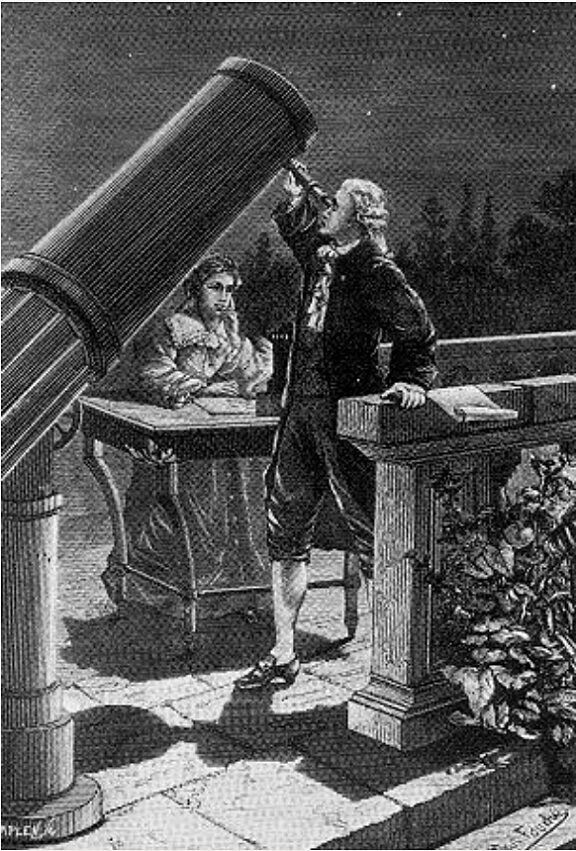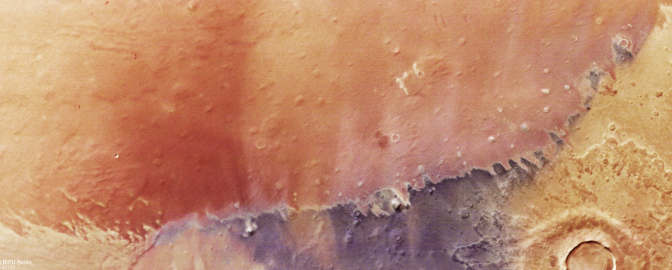A rose by any other name

Written by
Kate Howells
Public Education Specialist, The Planetary Society
September 12, 2022
There's no question that communicating to the public about the planet Uranus would be easier if it had a different name. Most people can’t help but giggle when they hear one particular pronunciation of the name (you know the one). But this wasn’t always the planet’s name, and luckily, there are more dignified ways to pronounce it.
Most of the planets in the Solar System have names that go back thousands of years. Mercury, Venus, Mars, Jupiter, and Saturn are all visible to the naked eye, so they were given names by cultures all around the world. It wasn’t until 1781 that astronomer Sir William Herschel discovered Uranus when looking for comets using a telescope. A very novel opportunity arose: naming a planet.

Herschel, a devoted subject of England’s King George III, suggested that the new planet be named Georgium Sidus, or George’s Star. This went against the naming convention that had developed in the Western world, in which planets were named after Roman deities. It was also less appealing to astronomers outside Great Britain for obvious reasons. Several alternative names were tossed around, including Herschel (after its discoverer) and Neptune. German astronomer Johann Elert Bode, whose observations helped establish the new object as a planet, suggested another possibility: Uranus.
Bode’s suggestion became the most popular, and chemist Martin Klaproth even named his newly discovered element “uranium” in a show of support. Although astronomers in England continued to use Georgium Sidus until around 1850, they eventually joined the rest of the world in calling the seventh planet Uranus.
Although Uranus was a more suitable name for a planet than George, it was still an odd choice in retrospect. The existing planet names reference the Roman gods, but Uranus is a variation on the name of the Greek god Ouranos. Greek and Roman mythology share many of the same characters — just given different names — and the Roman version of Ouranos is called Caelus. Bode must have preferred the sound of Ouranos because he chose a Latinized version of the Greek name rather than the Roman name itself. Ouranos became Uranus, and the planet was officially named.

Bode probably didn’t anticipate that his decision would cause headaches for scientists and science communicators more than a hundred years later. In most languages, it’s not really an issue. In English, however, the popular pronunciation “your-AY-nuss” provides all-too-fertile ground for jokes and tends to distract from the majesty and dignity of the planet itself. But there is a common alternative: “YOOR-un-us.” This is how you’ll typically hear it pronounced by scientists, and it’s the pronunciation that NASA officially endorses.
Since both pronunciations are deviations from the original Greek “OOH-ran-ohs,” neither is more technically correct than the other. But as we look forward to the coming years of reporting on and advocating for the exploration of Uranus, we’ll opt for “YOOR-un-us” and do our best to keep this fascinating world from becoming the butt of the joke.
Support our core enterprises
Your gift today will go far to help us close out the year strong and keep up our momentum in 2026.
DonateThe Planetary Report • September Equinox
Help advance space science and exploration! Become a member of The Planetary Society and you'll receive the full PDF and print versions of The Planetary Report.


 Explore Worlds
Explore Worlds Find Life
Find Life Defend Earth
Defend Earth


